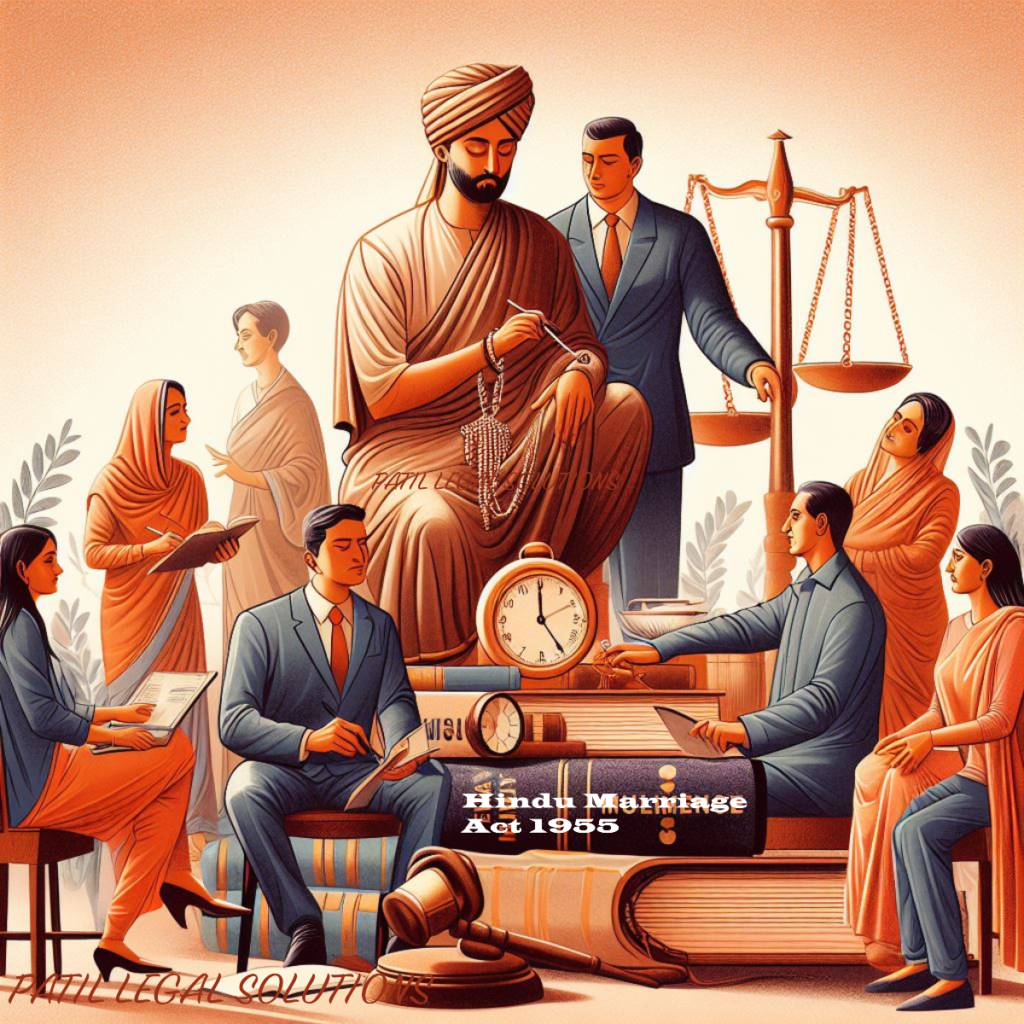Maintenance Laws in India Introduction:
Divorce and separation bring about numerous legal considerations, especially concerning maintenance obligations. In India, the Hindu Marriage Law outlines specific circumstances where a husband may be exempt from paying maintenance to his wife. Let’s delve into these situations with a focus on maintaining clarity and fairness within the legal framework.

Adultery:
Section 125 (4) of the Code clearly debars a wife living in adultery from receiving any maintenance from her husband. Considering the expressed embargo on the right of the Petitioner, to claim maintenance particularly, when divorce is ordered based on the allegation of adultery under Section 13 of the Hindu Marriage Act, 1956, the Court held that the Petitioner-wife is not entitled for maintenance under the provisions of Section 125(4) of CrPC.
Mutual Consent Between the Husband & Wife Regarding Maintenance:
Sub-section (4) of Section 125 of Cr.P.C. Debar a wife from claiming maintenance under 125 Cr.P.C. in cases where the husband and wife live separately by mutual consent. Sub-Section (5) further provides for cancellation of any such order under Section 125 Cr.P.C. On proof that husband & wife are living separately by mutual consent. It is thus clear that a wife living separately from her husband by consent cannot enforce her right & ask for maintenance under Section 125 Cr.P.C.
High Income of the Wife:
The Hindu Marriage Act, 1955, Section 24 is in respect of interim maintenance to the wife or petitioner. The financial independence of the wife is a crucial consideration in deciding maintenance under Section 24 of the HM Act. Additionally, if she has a substantial income and her wife or petitioner is capable of earning and has the required qualifications, In such a situation, Section 24 of the Hindu Marriage Act cannot come to the aid of such persons. In such a case, the husband may strategically argue for exemption from maintenance, explicitly highlighting her capacity to sustain herself financially.
No Maintenance When Husband Ready to Take Back His Wife for Matrimonial Co-habitation:
By expressing a genuine willingness to reconcile and resume matrimonial cohabitation, the husband may sway the court. This demonstrated willingness can serve as a compelling argument for the husband seeking exemption from maintenance obligations.
Application by wife for grant of maintenance alleging that after the marriage, she was ill-treated for demand of dowry and the husband deserted her without any valid reason. The husband, in replay, submits to court that the wife, on her own, was voluntarily residing separately. He wanted to live with her, for which he filed the suit for restitution of conjugal rights, which was decreed in favour of the husband, but the wife is not complying with the judgement and decree of restitution of conjugal rights. The court will set aside the interim maintenance on the filing of the revision application by the husband.
Divorced Wife
Code of Criminal Procedure, 1973 Maintenance divorce- Section 125 Application for maintenance by the wife after divorce: The court ruled that, Clause (b) of section 125 (1) only expands the definition of “wife” in sub-section (1) and does not increase the rights of the wife if she becomes a divorcee later. Therefore the respondent/wife did not have a case under section 125(1) for maintenance. Maintenance order cancelled
Prohibited Relation Marriage:
Code of Criminal Procedure, 1973 -Section 125 of the Maintenance Hindu Marriage Act, 1955 (Sections 5(iv) and 3(g)(iv) -Marriage within a prohibited relationship: consequence of The court ruled that. Since the parties are in a prohibited relationship and as per the provisions of Section 5(iv) r/w Section 3(g)(iv) of the Hindu Marriage Act, their supposed marriage would not be considered legal or valid. If the supposed marriage is invalid, then the petitioner wife cannot get the benefit of Section 125 of the Cr.P.C.
Code of Criminal Procedure, 1973, Section 125, Maintenance—Marriage within the prohibited degree of relationship Is such a wife eligible for maintenance?
The court concluded that both the petitioner & opposite party No. 1 are in a prohibited degree of relationship, making it undeniable. Consequently, the court cannot regard the petitioner as the lawful married wife of opposite party No. 1, & maintenance was correctly denied.
Highly Qualified Wife-previous working Wife:
Protection of Women from Domestic Violence Act, 2005-Section 12-Maintenance of Wife:
The wife, who is highly qualified and formerly employed, wants to stay idle and put her burden on the husband by demanding alimony from him during the matrimonial petition. The court holds that she is a well-educated lady who voluntarily chose not to work, even though she had the ability to work and find a suitable job for herself. Therefore, the court will refuse her interim monetary relief.
Section 18 of the Act or Section 25 of the Hindu Marriage Act: The wife, highly educated and working as a lecturer in various colleges at different periods, earned a much higher salary than the appellant. The word ‘unable’ implies that a person cannot do what he is expected to do. Section 18 of the Act or Section 25 of the Hindu Marriage Act applies to the situation where the wife cannot support herself. The appellant has shown by documentary evidence that the wife is more educated than the husband and can clearly earn more. This also makes her ineligible for any maintenance.
Hindu Marriage Act, 1955 -Section 24 Pendente lite alimony:- While fighting a divorce petition filed by her husband. A lady cannot stay idle & expect pendente lite alimony from him. Section 24 does not seek to produce a bunch of such idle people who would sit idle and hope for a ‘dole’ from their husband. Who is unhappy with them and who has gone to the Court for a remedy against them. The case may be the opposite as well. Petition dismissed.
No Maintenance When Wife Not Stating She is “Unable to Maintain Herself”:
Code of Criminal Procedure, 1973 Maintenance Section 125 Pleading. The question for consideration is whether it was necessary for the wife to aver positively and prove that she was unable to maintain herself as contemplated under Sec. 125(1)(a) Cr.P.C. The court held that, The words ‘unable to maintain’ used by the Legislature are significant and not redundant. Considering the various social measures & the changed circumstances of the society. The Legislature has likely deemed it necessary that maintenance to a wife as per Sec. 125 Cr.P.C. should be given only to a wife who cannot maintain herself or lacks sufficient means to do so.
Living Separately for No Reason – Fails to Prove Cruelty/Desertion:
Living separately without substantiating valid reasons such as cruelty or desertion may weaken the wife’s case for Alimony. Failure to prove these allegations can be a pivotal factor in the husband’s claim for exemption.
Void Marriage/Marriage not proved/2nd Wife/non-wife
Code of Criminal Procedure, 1973 – Section 125 – Hindu Marriage Act, 1955 – Section 13 and 5 – Petition for maintenance by the wife against her husband:
When the wife was married before and her first husband is still alive. They did not get a divorce as the Hindu Marriage Act says. The Hindu Marriage Act does not allow the parties to agree to end their marriage without going to court. So, the court cannot decide if the agreement between the wife and the first husband about divorce is valid or if the wife’s marriage with the petitioner is valid in a case under Section 125 of the Criminal Procedure Code. The marriage seems to be invalid, so the wife cannot get maintenance.
Conclusion about Maintenance:
To comprehend the specific circumstances relieving a husband from financial duties. A detailed understanding of maintenance laws in India is essential. Investigating these circumstances and presenting pertinent arguments enables individuals to defend their rights within the legal framework. This approach ensures fairness in the process.


Leave a Reply